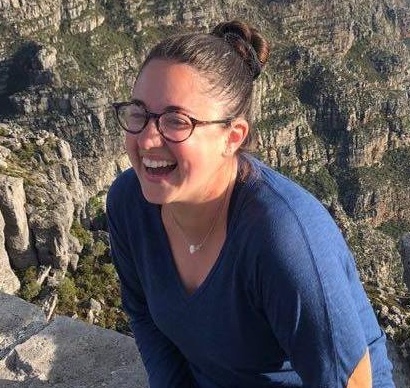Local News
Limmud preview: Jonathan Sarna and similarities between a Yellow Fever plague in the 1870s and today’s pandemic

(Ed. note: Limmud will be offered online this year, beginning March 7. As is our custom, we will be presenting previews of various Limmud speakers, beginning with this piece. Check this website for more previews in the weeks to come.)
By MARTIN ZEILIG
An 1873 epidemic claimed the lives of 2,000 residents in Memphis, Tennessee, “a number which constituted at the time the most yellow fever victims in an inland city” according to Wikipedia.
Jonathan Sarna calls that epidemic a very Jewish story.
Dr. Sarna, the Joseph H. and Belle R. Braun Professor of American Jewish History in the department of Near Eastern and Judaic Studies at Brandeis University in Waltham, Massachusetts, will deliver a virtual lecture entitled Yellow Fever, Covid and the Jews: Lessons from Two Great Plagues, at the 11th annual Limmud Winnipeg on March 7.
This will be the first ever Limmud festival to take place on Zoom, notes Florencia Katz, Winnipeg Limmud Inc. Coordinator.
“This year presents some particular opportunities to expose international Jewish teachers and thinkers to the Winnipeg audience and engage participants from across the continent in Winnipeg’s Limmud,” she said in an email to The Jewish Post & News.
There was a significant Jewish population in Memphis in the 1870s, Prof Sarna observed.
“But, even more so, it so happened that the best record maintained was by a Memphis Jew and a rabbi in Memphis which played a very significant role in abating the plague,” he said during a telephone interview on January 28.
Yellow fever is a disease caused by a virus that is spread through mosquito bites. Symptoms take 3–6 days to develop and include fever, chills, headache, backache, and muscle aches, notes information found online. About 15 percent of people who get yellow fever develop serious illness that can lead to bleeding, shock, organ failure, and sometimes death.
“One of the things I want people to see is how many parallels there are,” said Prof Sarna, who is also director of the Hornstein Jewish Professional Leadership Program at Brandeis, as well as the Chief Historian of the National Museum of American Jewish History in Philadelphia, Pennsylvania.
“The City Fathers in Memphis wanted to cover up the plague and then insisted on playing it down and it’s bad for business to talk about plague. Religious leaders, therefore, had a roadside role in the community because they were the ones who took it seriously, who visited the sick and buried the dead and so forth.”
He maintains there are other aspects of the plague that contain lessons for our day.
“I’m also going to pivot and talk about some of the early lessons that we’ve seen in COVID and some of its implications,” Prof Sarna, whose 2004 book, “American Judaism: A History”, received the National Jewish Book Award and appeared as Publishers Weekly’s Best Religion Book.
“For example, in many communities people have fallen back on the Jewish community for help. In well organized Jewish communities, they maintained ties and opened up Zoom and made sure that Jews were able to make Passover, and that they checked in on you.
“That’s likely to have an impact down the road. There’s value in being part of a Jewish community. Similarly, there’s a lot of talk within the Jewish community about a future where people are connected through Zoom or related media and what that really means.”
He pointed out that Zoom existed before COVID.
“But, most people had not used it and were not adapted to using it,” he said.
“Now, pretty much everybody has got adapted to using it, certainly everybody at Limmud. I want to talk about that; and, what it will mean that Zoom will remain a norm. It will actually strengthen the Jewish community, especially Jewish education in significant ways. It overcomes various structural problems that existed. But, I think there is a sense that there will be a future where we’ll be getting together both in person and also virtually.
“I want people to come away with a sense that just as the plague in Memphis and other past plagues transformed communities, it is quite likely that COVID will have a big impact on Jewish life. My hope is that people will begin thinking about that.”
For further information on Limmud, visit the website: www.limmudwinnipeg.org or contact the Limmud Coordinator at coordinator@limmudwinnipeg.org or 204-557-6260
Local News
New Hillel Winnipeg director Lindsay Kerr happy to be home again

By MYRON LOVE Lindsay Kerr, the newly-appointed Hillel Winnipeg director says that – after having experienced Jewish life on both the east and west coasts – she is happy to be back in the community in which she was born and raised – although, she concedes, it feels a little strange not having her parents in Winnipeg any more.
Kerr is the daughter of Jeff and Joyce Kerr. Joyce was a long time teacher and administrator at Gray Academy. In the summer of 2023, she and Jeff moved back to Calgary where she took up her new role as principal and head of school at the Calgary Jewish Academy – where she herself went to school.
Lindsay Kerr is a Gray Academy graduate and was also a BB Camp “lifer” – having spent 15 summers there – the first eight as a camper and seven more as counsellor. She was also a BBYO member in her teen years.
Lindsay left Winnipeg originally in 2017 to go to work for BBYO Passport Travel Experiences – a summer program open to Jewish teens that takes small groups to visit Jewish communities in other countries and combines touring with some community service. Over a period of five summers I(2015-2019), Kerr led groups on trips lasting from ten days to six weeks, to Israel, England and France, South Africa and different places in the United States and South America.
Before she began her work with BBYO Passport, Lindsay completed a degree in Education at the University of Winnipeg. On her return home in 2017, she quickly realized that teaching was not for her. “I found that I preferred community work,” she says.
“I had originally applied for a job as a Hillel director in Ontario,” she recounts. “While that didn’t work out, I was offered a job as Hillel director in Halifax.”
She arrived in her new posting in2017. While Lindsay was based in the Nova Scotia capital, she was also responsible for organizing Hillel activities in New Brunswick and Newfoundland.
Halifax has a Jewish population of about 2,000, she reports, with much smaller Jewish communities in Fredericton – New Brunswick’s capital – and St. John’s. The Jewish university student population in Halifax, she estimates, was between 200 and 300 – with between 40 and 60 active in Hillel.
“It was a nice mix of local students and students from away,” Lindsay notes.
While Kerr says that she did enjoy living in Halifax – and that she had the opportunity to see much of the Maritimes – it was too far from home. Thus, after three years, she left Halifax for the position of Director of Student Life at UBC Hillel in Vancouver.
Vancouver’s Jewish population is between 35,000 and 40,000. While the bulk of Jewish university students on the west coast attend UBC, she points out, her duties also included representing Hillel at the other post-secondary institutions in the Vancouver area as well as the University of Victoria on Vancouver Island. Lindsay estimates that there are perhaps 800 Jewish students enrolled at UBC and roughly 200 at the University of Victoria.
Lindsay’s timing, however, was not the best though. “Two week after I arrived,” she recalls, “we were shut down by the Covid lockdown.
“I came to really appreciate the weather on the West Coast. Despite the restrictions, we were able to have outdoor programs – and we organized a number of programs online. We were able, for example, to share Shabbat dinners on Zoom. We delivered Shabbat meals to participating students beforehand.”
After three years with Hillel in Vancouver, Lindsay found that she longed to come back to Winnipeg. She returned about a year ago, she notes, and subbed at Gray Academy last year.
“I am seeing a lot of interest in Hillel here,” she says. “Jewish students know that it’s a place where they can feel safe. Hillel’s role on Winnipeg campuses in these times is increasingly related to advocacy while continuing to build community through social and cultural programming as well.”
Lindsay reports that her first program this year as Hillel director was a barbecue on September 22 at Assiniboine Park. “We played some games,” she says. “We had kosher hot dogs. We had about 30 students participating.”
She looks forward to the continued growth of Hillel’s presence on campus, at both the University of Manitoba and University of Winnipeg, in addition to ensuring students at Red River College know they are part of Hillel Winnipeg as well.
Local News
Award winning architect Ed Calnitsky adds Theology degree to resumé

By MYRON LOVE Ed Calnitsky has recently added a notable entry to his resumé. At an age when most individuals—myself excluded—are contemplating retirement, the accomplished architect chose to return part-time to university and pursue studies in theology. About a year ago, he graduated from the University of Winnipeg with a Master of Arts in Theology and was honored with the Gawthrop Prize for achieving the highest grade point average in Theology at the University’s United Centre for Theological Studies.
Calnitsky, a graduate of the former Joseph Wolinsky Collegiate, is only one of a select few of our Jewish community to earn an MA in Theology from the University of Winnipeg.
Calnitsky has been an architect for more than 30 years, and we have been friends since high school. In the fall of 1971, the two of us—along with a mutual friend—embarked on a trip to Europe. In London, our first stop, he secured a position with a British architectural firm, where he worked for three months. Afterwards, he traveled to Israel, where an opportunity arose to work for a leading architectural firm in Caracas, Venezuela. Calnitsky spent the subsequent summer working in Caracas for that company. “Working for architectural firms in both London, England and Caracas gave me the opportunity to understand how architecture is practiced in different countries,” he recalls.
Upon returning to Canada, he was hired to teach design at Fanshawe College in London, Ontario. After three years, he returned to Winnipeg, where he met Linda, his future wife, and decided to return to university to earn a degree in architecture.
In 1986, he established Calnitsky Associates Architects Inc., a multidisciplinary architectural and interior design firm, focusing on commercial and institutional projects across Canada and in the United States.
Some of Calnitsky’s most prestigious projects have included the Canadian Embassy Reconfiguration in Kyiv, Ukraine and the Canadian High Commissioner’s Residence and CIDA Offices in Bridgetown, Barbados. Other notable projects include the new Gillam Town Centre with PSA Studio Inc. – which received a Canadian Architect Award; the Manitoba Law Courts Building renovation involving the restoration of all courtrooms and judge’s chambers; and a major retrofit and upgrade to Assiniboine Park Pavilion in Winnipeg.
Notably, Calnitsky was also the architect for the new Congregation Etz Chayim Synagogue on Wilkes Avenue. Working together with lead architect Carlos Schor and interior designers Bernice Chorney and Frances Winograd, they converted the former Khartum Shriners Temple into a beautifully functioning synagogue. Calnitsky notes that “I’ve never been a solo practitioner, I’ve always sought out a group. Designing the new Etz Chayim Synagogue epitomizes this approach.”
Among his clients are an increasing number of church groups, and in this regard, Calnitsky was recently invited by Ruth Ashrafi to speak to this aspect of his practice in a presentation to Winnipeg’s Catholic-Jewish Dialogue Group. The presentation was appropriately titled “Lessons from a Jewish Architect Designing Churches.”
“I designed my first church about 20 years ago for a Christian Reformed Church congregation in Northwestern Ontario,” Calnitsky recalls. “I had to design it from scratch and knew virtually nothing about Christianity or Church architecture.”
Determined to educate himself, he began researching these subjects and found his interest deepening. “I gained valuable insights into the relationship of Christian theology and church architecture. Church architecture is a reflection of Christian theology, and its understanding is integral to the design.”
Currently, Calnitsky is working on churches in Winnipeg for Coptic Christian, Ethiopian, Nigerian, and Eritrean congregations—the latter involving renovations to the former Rosh Pina/Congregation Etz Chayim building on Matheson Avenue.
What surprised him most, Calnitsky notes, is the significant influence of Judaism on Christian theology, as well as the historical animosity that Christianity has often held towards Judaism. He points to an example of this hostility in the placement of stained glass windows within churches. As worship is oriented east to the altar, stained glass windows are typically located in the north and south walls, with the south walls receiving more sunlight and therefore, appearing brighter. Consequently, scenes from the Hebrew Bible are often depicted in the windows of the darker north wall, while the New Testament windows bask in sunlight.
“While the Romans violently suppressed the Jewish rebellion in 70 AD, they largely tolerated Jews throughout the rest of the empire,” Calnitsky observes. “It was only after Roman Emperor Constantine adopted Christianity as the official religion of the Roman empire that widespread demonization of Judaism began.”
Calnitsky notes that “for centuries, Christian scholars and theologians perpetuated a distorted view of Judaism as a legalistic religion of “works-righteousness” filled with empty rituals and practices that earned one salvation through a merit-based approach. Christianity, in stark contrast to Judaism, was portrayed as a moral, universalistic religion of grace, love, and forgiveness. Generation after generation, Christian teaching of contempt towards Jews characterized Judaism as the perfect dark background against which Christianity could shine all the more brilliantly.”
He notes that it was only after the Holocaust that Christian theologians began to reconsider their views about Jews and Judaism. Pope John XXIII and the Vatican Council in 1963 began shifting Catholic attitudes towards Jews. However, the true turning point occurred in 1977 with the publication of Paul and Palestinian Judaism by New Testament scholar E.P. Sanders. Calnitsky highlights how Sanders’ research into Jewish scriptures debunked the long-standing misrepresentations of Jews and Judaism by Christians, often without ever engaging with Jewish perspectives.
His own master’s thesis examined Pauline scholarship and Jewish-Christian dialogue, emphasizing the need to read the Apostle Paul within a Jewish context. “Paul did not convert to Christianity, nor was he anti-Jewish,” Calnitsky asserts. “He understood his calling to be turning pagans from their own gods to the god of Israel through Christ; he didn’t believe the Jews needed saving.”
Recently, Calnitsky was invited to present a paper on the Apostle Paul at the annual conference of the Canadian Society of Biblical Studies at McGill University. His paper, entitled “The Architecture of the Apostle: Reconstructing Paul,” affirms the position that Paul was not a Christian, and should be understood within the framework of Judaism. Paul had no issues with Jews and Judaism, and his gospel was about messianic salvation for Gentiles and pagans, leaving the Jewish covenant with God intact, with no supersession of Judaism by Christianity and no end of days conversion to Christ.
Despite this evolving attitude among Christian theologians and scholars towards Jews and Judaism, Calnitsky remains cautious, expressing skepticism about whether the persistent scourge of anti-Semitism will ever fully dissipate.
As for architecture, Calnitsky has not lost his love or enthusiasm for his work, stating that “I believe that you should never stop doing what you love.”
Local News
Lorne Bellan, Winnipeg’s first oculoplastic surgeon, looks back on nearly 35 year-career

By MYRON LOVE Ophthalmologist Dr. Lorne Bellan, Winnipeg’s first oculoplastic surgeon has retired. He stepped down at the end of June after a career spanning almost 35 years.
“One issue was that I was finding the physical aspects of my work becoming increasingly difficult,” he says. “It was particularly hard on my neck and shoulders.
‘I also felt that it was time for me to make way for new people.”
Lorne Bellan is the son of the late Ruben Bellan, a greatly respected economist and University of Manitoba professor, and his equally accomplished wife, Ruth. The future ophthalmologist grew up in River Heights. He attended Ramah in his early years and, later, River Heights School and Grant Park.
“I did my Grade 12 year in England,” he recalls. “My dad was on a sabbatical year in England.”
In university (at the U of M), his interests were in Math and Science. “I wasn’t sure what I wanted to do after graduation,” he notes. “Some of my friends encouraged me to consider medicine.”
Berllan graduated from UBC with a specialty in oculoplastic surgery and, in 1991, joined the staff of the Health Sciences Centre as Winnipeg’s first oculoplastic surgeon.
He relocated to the Misericordia Eye Centre in 1994 when all surgical eye care in the city was consolidated there.
“Basically, an oculoplastic surgeon deals with all structures pertaining to the eyelids and orbit,” Bellan explains -“conditions such as tearing issues, droopy eyelids, traumatic injuries and cancers.”
He shared an anecdote about one case that stood out. “I had a patient who was deaf and mute,” he recounts. “He communicated by writing. But his cataracts were so bad that he had to use crayons and his letters were really big. After the surgery, when he returned to see me, he was using a fine pen and much smaller print.”
Bellan was not only a surgeon but also an educator and leader in his field. He taught in the Maxwell Rady School of Medicine’s Ophthalmology Department for 33 years. In 2001 he became Department Head and served as the chair for 20 years. He was the driving force in establishing the Ophthalmology Residency Program in Manitoba. He also created and ran the undergraduate teaching curriculum.
Bellan was recognized nationally for his research interests in Ophthalmology health human resources and wait times and was a leader in promoting ergonomics for ophthalmologists.
At the national level, he has served with the Canadian Ophthalmological Society (COS) in numerous capacities over the years. He chaired the Council on Provincial Affairs and the COS Clinical Practice Guideline for Cataract Surgery committee. Bellan was the COS representative to the Wait Time Alliance where he was elected by the 14 medical societies to be chair and spokesperson. He served on the COS Board of Directors for 9 years and was the COS President in 2009-11. During his term he commissioned the first guideline for ethical charging for uninsured ophthalmic services.
For the past six years, Bellan has been the chair of the Royal College Ophthalmology Specialty Committee and has served on that committee for over 20 years. He notes that he will be stepping down from that position at the next AGFM in June, 2025.
Last year, the COS recognized Bellan with its Lifetime Achievement award.
In retirement, Bellan is looking forward to spending time reading, exercising and spending winters in the south. For now, Bellan and his wife of 43 years, Dr. Bonnie Cham, are busy packing up their house for the move to their new condo.
Bonnie, he notes, was a pediatric oncologist who was also chair of the Canadian Association of Medical Ethics. She retired a few years ago.
Bellan is proud to report that – as is often the case in families – two of the couple’s three sons have gone into the “family business”. Eldest son, David, is an ER doctor in Vancouver while second son, Gary, is a family doctor at the St. Boniface clinic. Youngest son, Jonathan, has chosen to pursue a career in engineering.
Lorne Bellan does have one regret. It is that the young doctor from England who was supposed to replace him bowed out two weeks before he was scheduled to arrive.
“There are efforts underway to recruit another oculoplastic surgeon,” he reports. “There is an Israeli doctor in training whom we hope will be coming here soon.”


You must be logged in to post a comment Login